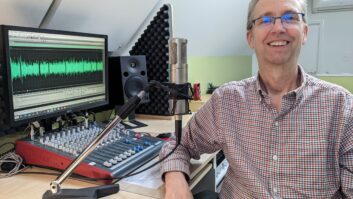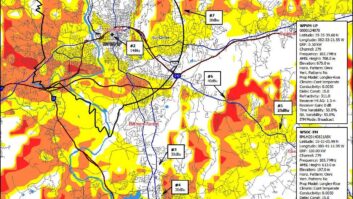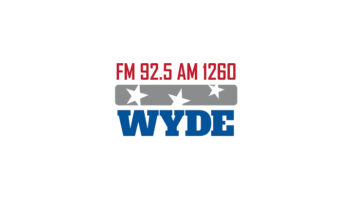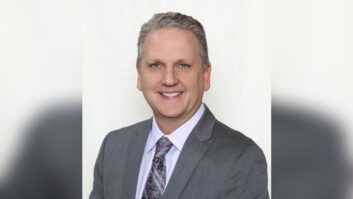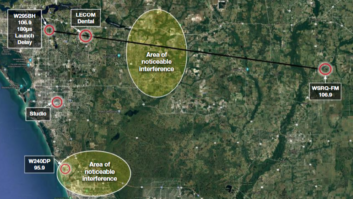WASHINGTON
Hundreds of AM broadcasters eventually could take advantage of proposed rules changes that will allow them to retransmit their programming on FM translators, industry analysts say.
However, they also believe the interest level will exceed the number of opportunities available.
Some deals between FM translator owners and some AM station owners are already being made since the FCC has been accepting and processing since last year, requests for special temporary authority to allow AM stations to rebroadcast their signals on FM translators. Only the use of existing FM translators, not new ones, is allowed under such an arrangement.
The FCC in a proposal of rulemaking in the fall (MB Docket # 07-172) sought public comment on whether to allow AMs to own and operate FM translators as a fill-in service in an area that is the lesser of a circle 25 miles from a transmitter site or within the 3 mV/m daytime service contour.
Advocates of the rulemaking say the public’s perception is that AM is outdated and the service needs this help. Add the potential for IBOC nighttime interference further reducing the coverage of many small AM stations, and supporters say allowing AMs to rebroadcast original programming better allows them to serve their local communities. Specifically, daytimers and those with severe limitations on nighttime operations would benefit.
A broadcast translator receives a signal and retransmits it on a different frequency via a low-power transmitter — typically 1 watt to 250 watts — to extend the range of the original broadcast station. More than 4,100 FM translators and boosters are licensed to operate in the United States, according to the FCC.
Slam dunk?
Several communications attorneys contacted for this story say they expect the agency to amend its rules.
“This is about as close to a slam dunk as you can get that the FCC will ultimately modify its rules to permit AM stations to rebroadcast on FM translators. Since the FCC has already authorized through the STA process multiple rebroadcast situations, to some degree, the bell has already rung,” said Harry Cole, of Fletcher, Heald & Hildreth and an RW contributor.
John Garziglia of Womble Carlyle Sandridge & Rice said, “Since the [FCC] Audio Division is already granting STAs for AM stations to be carried on FM translators, it sure looks they’ll be willing to change the rules. However, the process at the FCC has been moving molasses-slow. The commission took over a year to release the Notice of Proposed Rulemaking, then another three months to publish it.”
The NAB has lobbied hard for the changes, saying they will mitigate coverage problems and promote competition, diversity and localism.
“Allowing AM stations to utilize FM translators will provide AM stations an opportunity to better serve their local community,” said Dennis Wharton, vice president of communications for NAB.
“The rule change is needed to assist AM stations that are facing increasing interference due to both manmade and geographic obstacles.”
NAB has staunchly sought to protect broadcast spectrum and is on record as being opposed to any additional interference that could be caused by new low-power FM stations. However, the lobbying group believes the proposed translator rulemaking does not create a potential increase of interference on the FM band.
“If anything, (the FCC proposal) underscores the importance of ensuring interference-free radio service,” Wharton said.
Flood
The NPRM as written only allows existing or applied-for translators to be fed by AM broadcasts, to avoid creating additional interference worries, industry experts say.
A 2003 FM translator filing window attracted some 13,000 applications. Some 7,000 of those from Auction 83 are still pending, according to the FCC’s Audio Division. However, the FCC put a cap on the amount of applications it will process for each entity.
The commission is unlikely to launch another FM translator filing window opening additional opportunities for AM broadcasters anytime, given the flood of applications from Auction 83, sources say. In addition, the FCC’s recent actions on low-power FM rules could signal limited FM translator growth in the future.
The FCC indicated in its LPFM Third Report & Order, released in December, that it will consider ways to reassess the co-equal, secondary status of LPFM and translator stations. Currently, the first proposed facility of either service has priority over any subsequent application filings.
Industry experts predict there will be a number of new FM translators coming online in the next few years as a result of the 2003 window, but maybe not enough to satisfy the interest level of AM broadcasters.
“AM broadcasters should be aware of what FM translator applications are pending in their area and to the extent they can, be prepared to purchase a translator construction permit if the applications are eventually granted,” said Garziglia.
One communications attorney said, “With the commission’s new twists on secondary services, we may be in for a spell of dueling banjos,” as new rules for both LPFM and FM translators are determined.
“It is possible the FCC will try to give some kind of priority for LPFM stations over FM translators,” said Garziglia.
Cole agrees the change in LPFM rules will result in fewer opportunities for FM translator hopefuls.
“The FCC seems to perceive LPFM and FM translators as enemies, so any advancement of LPFM interests would ordinarily be expected to mean some corresponding curtailment of translators’ interests,” Cole said.
Garvey Schubert Barer’s John Crigler said one of the drawbacks of the new FM translator proposal is the scarcity of spectrum for new translators and the intense competition for that spectrum by established commercial and non-commercial broadcasters.
“With the some of the interference rules lifted for LPFM, the competition will ratchet up even further. LPFM advocates see every translator as a lost opportunity for a new LPFM station,” Crigler added.
Strong interest
Industry analysts say there is a high level of interest among AM licensees eager to explore new opportunities with FM translators. In comments to the FCC, several AM licensees wrote about being able to better serve their communities as a result of the proposed changes.
Robert Bierman, owner of WCHM(AM) in Clarkesville, Ga., said the substantial increase of manmade interference to AM broadcast sources has hurt his station.
“The interference has dramatically reduced both our daytime and nighttime coverage, making it difficult for many people in our primary service contours to listen without objectionable interference.
“The use of FM translators to overcome the increasing limitations to many AM stations would be of great service, particularly in smaller communities,” Bierman wrote in his public comments.
Another AM broadcaster said the rules change would “level the playing field” and allow AM stations to compete with FMs.
“I own and operate a 1 kW AM radio station in Cairo, Ga. Our station went on the air in 1949 when there were fewer radio stations and therefore, little interference. Since that time … we have noticed that our signal is no longer the clear voice of our community,” Jeff Lovett, owner of WGRA(AM) wrote in his comments.
“If we were able to provide programming on a limited power FM channel … we could bring a real community radio station, owned and operated by people who live in our hometown, to thousands of people who will never switch over to AM,” Lovett concluded.
As part of the rule process, the commission will also decide if it should cap the number of translators an AM station can employ.
“We feel a limit of five translators for any one AM station is appropriate,” wrote Clyde Scott Jr., president of Colquitt Community Radio, a Georgia not-for-profit corporation.
Reply comments to FCC Docket # 07-172 to allow FM translators to rebroadcast the signal of AM stations are due Feb. 4.
Most observers expect the FCC to then act quickly to adopt the rules, possibly as early as this summer.


